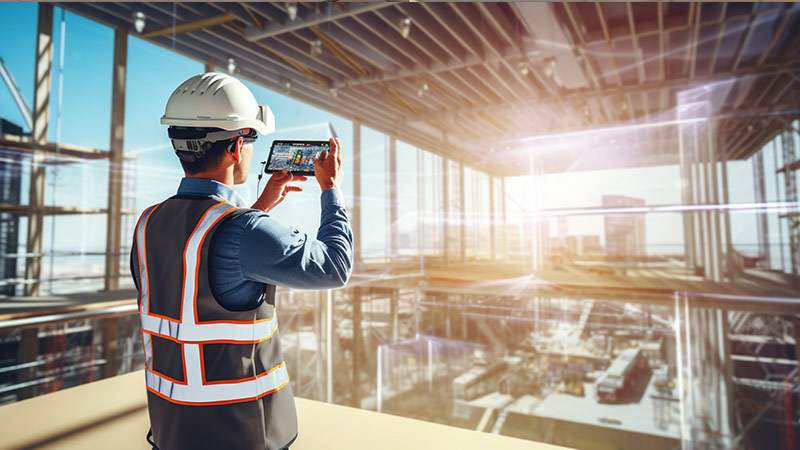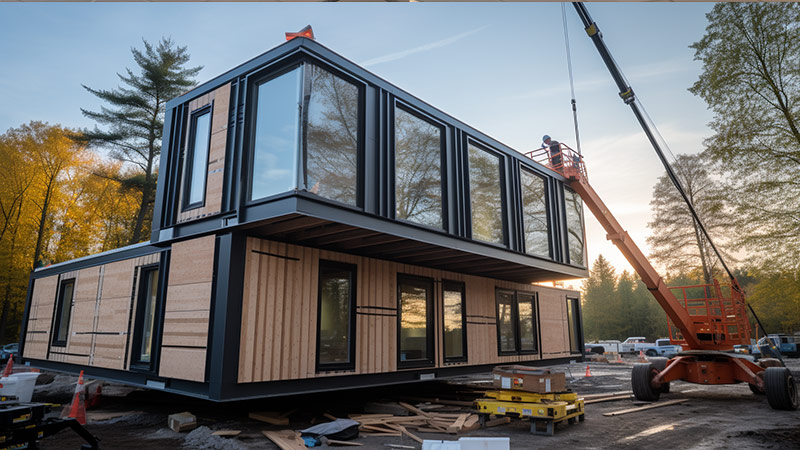The future of education in the construction industry: Building a sustainable and innovative tomorrow
Author: OCRC
Posted on Jul 13, 2023
Category: Off-site Construction

As a research centre embedded in one of the longest standing engineering programs in Canada, the OCRC recognizes the critical importance of education to meet the expected demands of the construction industry. In this blog post, the OCRC dives into the emerging trends and transformative approaches that will shape the educational landscape. By equipping students who eventually become industry professionals and leaders with the necessary skills and knowledge, the universities can ensure a workforce that is ready to meet the challenges and opportunities of the future head-on.
Education on off-site and modular construction methods
Off-site and modular construction methods offer significant advantages, including efficiency, reduced construction time, quality control, and sustainability. To harness the potential of this method of construction, specialized education is essential. By integrating this knowledge into the curriculum, educational institutions can equip students with the principles, processes, and technologies specific to off-site and modular construction. This hands-on experience enables students to develop expertise in design for manufacturing and assembly, manufacturing processes, simulation and optimization and projects, transportation logistics, assembly techniques and regulatory requirements. Education in this area not only enables professionals to leverage the benefits of these methods but also fosters creativity and inspires the development of innovative solutions, propelling advancements in the field.

Embracing technological advancements
The construction industry is undergoing a digital transformation, fueled by construction technologies such as Industry 4.0 and 5.0. These developments present major prospects in the building and modular construction industries. Internet of Things (IoT), robotics, and artificial intelligence (AI) are examples of Industry 4.0 technologies that enable real-time data collection, automation, and process optimisation. IoT sensors in modular components allow for remote monitoring, quality control, and predictive maintenance, enhancing efficiency and reducing costs. Robotics and artificial intelligence (AI) improve efficiency by streamlining assembly processes. Cloud computing enables cross-stakeholder collaboration and data management. Integrating virtual reality (VR) and augmented reality (AR) into the curriculum provides immersive experiences in project planning, design, and execution. VR enables virtual design and construction (VDC), whereas AR improves on-site building by superimposing digital information. By incorporating these technologies, educational institutions equip students with the skills to thrive in the evolving digital landscape of the industry.

Interdisciplinary education
Successful construction projects require collaboration among diverse disciplines, transcending traditional roles. Architects, civil, mechanical and electrical engineers, project managers, environmental scientists, etc. must work together seamlessly. Incorporating interdisciplinary education programs encourages cross-disciplinary collaboration and cultivates a holistic understanding of the construction process. Breaking down silos and fostering collaboration inspires innovation and equips students with the skills to tackle complex construction challenges from multiple perspectives.
Sustainable practices and green construction
Sustainability is a top priority in the construction industry, driven by the need to reduce carbon emissions and mitigate the environmental impact of buildings. Educators must integrate sustainable practices into the curriculum. Emphasizing green construction techniques, renewable energy integration, and circular economy principles equips future professionals with the knowledge and skills to create a greener and more resilient built environment. By incorporating sustainability into education, we ensure that professionals play an active role in addressing climate change and building a sustainable future.
Conclusion
The future of education in the construction industry is pivotal to prepare skilled workforce for the challenges and opportunities ahead. By embracing technological advancements, encouraging interdisciplinary collaboration, providing specialized education in offsite and modular construction, and emphasizing sustainable practices, we equip the next generation of construction professionals to build a sustainable and innovative future. Let us embrace these transformative approaches and shape the educational landscape, paving the way for a brighter and more resilient construction industry. Together, we can create a future where construction professionals thrive and meet the needs of an evolving world.